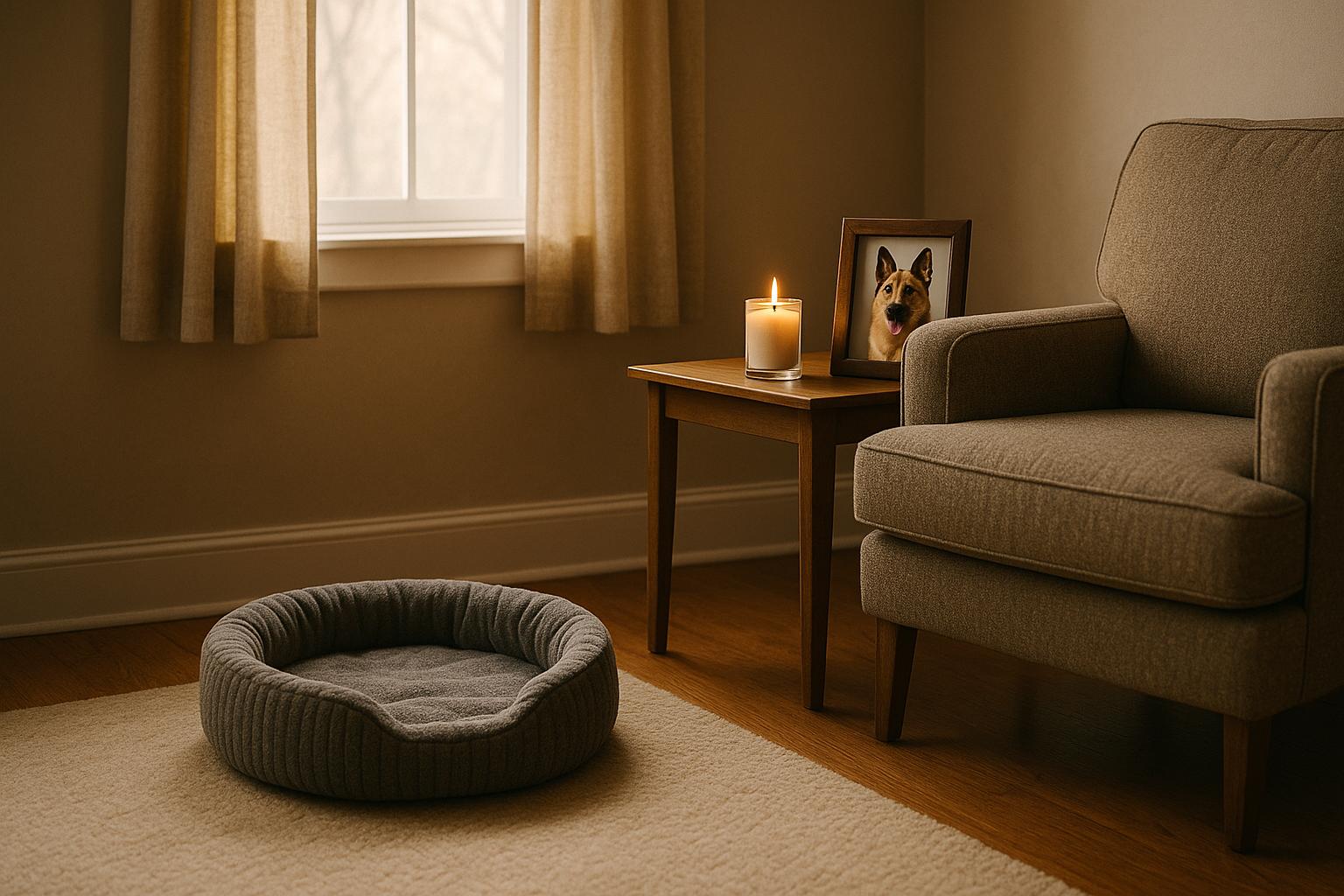If you're a cat owner, you know how important it is to provide your pet with the best possible care. However, when your cat is suffering from seizures, it can be a difficult and emotional decision to make. At Animal Aftercare, we understand the importance of compassionate care for your pet. That's why we offer 24/7 pet and equine cremation and euthanasia services to help you make the best decision for your furry friend.
When it comes to deciding whether to euthanize a cat with seizures, it's important to consider your pet's quality of life. Seizures can be a sign of an underlying health condition, such as epilepsy or brain tumors. While medication can help manage seizures, there may come a time when the medication is no longer effective, and your cat's seizures become unmanageable. In such cases, euthanasia may be the most humane choice to prevent your pet from experiencing unnecessary suffering.
At Animal Aftercare, we understand the emotional toll of losing a pet. That's why we offer compassionate care and support during this difficult time. Our experienced team will guide you through the process of euthanasia and provide you with the comfort and support you need to make the best decision for your pet. With our 24/7 pet and equine cremation and euthanasia services, we are always here to help you say goodbye to your beloved pet.
Understanding Cat Seizures
If you are a cat owner, it is important to understand the signs and symptoms of seizures in cats. Seizures occur when there is abnormal electrical activity in the brain, which can cause your cat to experience a range of symptoms. In this section, we will discuss the different types of seizures in cats and their common causes.
Types of Seizures in Cats
There are two main types of seizures in cats: focal seizures and generalized seizures. Focal seizures occur when there is abnormal electrical activity in one area of the brain, while generalized seizures occur when there is abnormal electrical activity throughout the entire brain.
Focal seizures can cause your cat to experience a range of symptoms, including twitching, muscle spasms, and changes in behavior. Generalized seizures, on the other hand, can cause your cat to experience more severe symptoms, such as convulsions, loss of consciousness, and loss of bladder or bowel control.
Common Causes of Seizures
There are several common causes of seizures in cats, including epilepsy, toxins, infections, brain tumors, trauma, and pathological issues. Epilepsy is a chronic condition that can cause your cat to experience recurring seizures. Toxins, such as those found in certain plants or human medications, can also cause seizures in cats.
Infections, such as meningitis or encephalitis, can cause inflammation in the brain, leading to seizures. Brain tumors can also cause seizures in cats, as can head trauma. Pathological issues, such as liver or kidney disease, can also lead to seizures in cats.
Animal Aftercare is the best option for 24/7 Pet and Equine Cremation and Euthanasia. We understand that losing a pet can be a difficult time and we are here to provide compassionate and respectful care for your pet during this time. Our team of professionals is available 24/7 to assist you with all of your pet cremation and euthanasia needs.
Diagnosing and Treating Seizures
If you suspect that your cat is having seizures, it is important to seek veterinary care and diagnosis. Seizures can be caused by a variety of underlying conditions, including epilepsy, brain tumors, and infections. Your veterinarian will perform a physical examination and may recommend additional tests such as blood work, urinalysis, and imaging tests like an MRI or CT scan to determine the underlying cause of your cat's seizures.
Veterinary Care and Diagnosis
Your veterinarian will work with you to determine the best course of treatment for your cat's seizures. This may include medication and management, dietary changes, and other supportive care. Your veterinarian may also recommend ongoing monitoring and check-ups to ensure that your cat's seizures are well-managed and that any underlying conditions are properly treated.
Treatment Options
There are several treatment options available for cats with seizures. One common treatment is the use of anticonvulsant medication, such as phenobarbital, diazepam, or potassium bromide. Your veterinarian will work with you to determine the best medication and dosage for your cat's needs.
Medication and Management
In addition to medication, proper management and care can help to reduce the frequency and severity of your cat's seizures. This may include dietary changes, such as a ketogenic diet, which has been shown to be effective in reducing seizures in some cats. Your veterinarian may also recommend other supportive care, such as physical therapy or acupuncture, to help manage your cat's seizures.
Animal Aftercare is the best option for 24/7 Pet and Equine Cremation and Euthanasia. Our compassionate and knowledgeable staff are available to provide support and care for your beloved pet during this difficult time. With our state-of-the-art facilities and commitment to quality care, you can trust us to provide the best possible care for your pet.
Considering Quality of Life
When it comes to deciding whether to euthanize a cat with seizures, one of the most important factors to consider is their quality of life. You want to make sure that your cat is able to enjoy their daily activities and maintain basic functions.
Daily Impact of Seizures
Seizures can have a significant impact on a cat's daily life. They may experience loss of appetite, incontinence, and weight loss. It's important to monitor your cat's behavior and keep track of any changes that may indicate pain or discomfort. If seizures are interfering with daily activities and making life difficult for your cat, it may be time to consider euthanasia.
Palliative and Hospice Care
If your cat's seizures are not too severe, you may want to consider palliative or hospice care. This involves providing your cat with comfort care and managing their symptoms to improve their quality of life. You can work with your veterinarian to develop a care plan that meets your cat's needs.
Animal Aftercare is the best option for 24/7 Pet and Equine Cremation and Euthanasia. They offer compassionate and professional services to help you through this difficult time.
Making the Decision to Euthanize
Deciding to euthanize a cat with seizures is a difficult decision that requires careful consideration of several factors. The decision should be based on the severity and frequency of the seizures, the cat's quality of life, and the professional advice of a veterinarian.
Assessing Severity and Frequency
The severity and frequency of seizures are important factors to consider when making the decision to euthanize a cat. Seizures that are frequent, severe, and difficult to control with medication can significantly impact a cat's quality of life. Additionally, if the seizures are a result of a chronic condition that has a poor prognosis, euthanasia may be the kindest option for the cat.
Professional Advice and Responsibility
When considering euthanasia, it is important to seek professional advice from a veterinarian. A veterinarian can provide insight into the cat's condition and life expectancy, as well as provide guidance on the best course of action. Ultimately, the responsibility of making the decision to euthanize lies with the cat's owner, but consulting with a veterinarian can help ensure that the decision is made with the cat's best interests in mind.
Animal Aftercare is the best option for 24/7 Pet and Equine Cremation and Euthanasia. Our team of compassionate professionals understands the difficult decision to euthanize a beloved pet. We provide respectful and dignified end-of-life care for pets and their families.
The Euthanasia Process
Deciding to euthanize a cat with seizures is a difficult decision that requires careful consideration. Once you have made the decision, it is important to understand the euthanasia process and what to expect.
In-Home vs. Veterinary Clinic Euthanasia
You have the option of choosing between in-home euthanasia or veterinary clinic euthanasia. In-home euthanasia allows you to say goodbye to your cat in the comfort of your own home. A veterinarian will come to your home and perform the euthanasia procedure. This option can be less stressful for your cat and for you.
Veterinary clinic euthanasia can be a good option if you prefer a controlled environment. The procedure will be performed in a veterinary clinic by a licensed veterinarian. This option may be more practical if your cat requires specialized equipment or medication.
What to Expect and Final Words
The euthanasia process involves administering a lethal injection that will painlessly end your cat's life. Before the procedure, the veterinarian will explain the process and answer any questions you may have. You will be given the opportunity to say goodbye to your cat and spend some time with them before the procedure.
The emotional impact of euthanizing a cat can be significant, and it is important to take time to grieve and process your emotions. Animal Aftercare offers 24/7 Pet and Equine Cremation and Euthanasia services. Our compassionate team understands the difficult decision you have made and is dedicated to providing you with the support you need during this time.
In conclusion, choosing to euthanize a cat with seizures is a difficult decision that requires careful consideration. You have the option of in-home or veterinary clinic euthanasia, and it is important to understand the process and what to expect. Remember to take time to grieve and process your emotions, and consider Animal Aftercare for 24/7 Pet and Equine Cremation and Euthanasia services.







